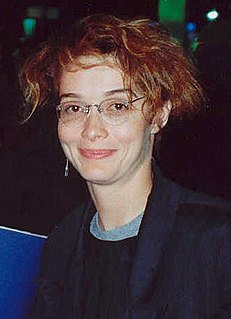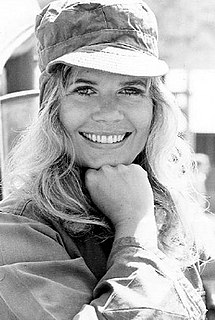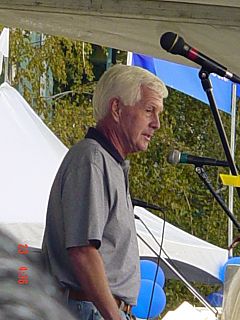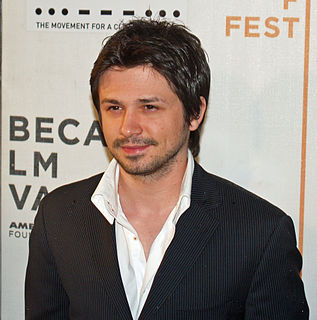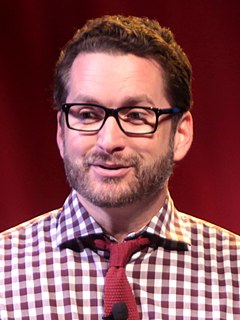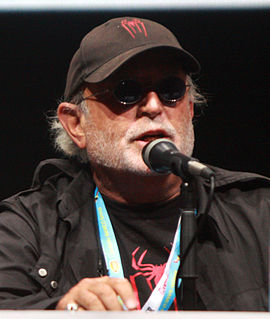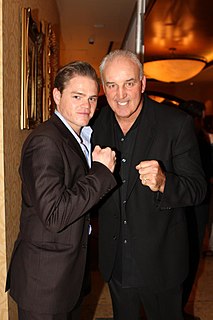A Quote by Melanie Mayron
My debut feature, 'The Baby-Sitters Club,' got good reviews and made good money for what it cost. But it took me six years to get to direct my second feature. I think a guy would have had another movie out the same year.
Related Quotes
Most people look at a feature film and say, "It's just a movie." For me there is no border or wall between fiction and documentary filmmaking. In documentaries, you have to deal with real people and their real feelings - you are working with real laughter, happiness, sadness. To try to reflect the reality is not the same as reality itself. That's why I think that making a good documentary is much harder than making a good feature film.
I think I would co-direct because I love actors and I've got a very good eye. I'm not a second-guesser. I don't think that I would be very happy, getting inundated by financial issues. I would love to co-direct with somebody because that would be a real freedom and an adventure, and then I could leave all the pain and misery to them. I'm not glib about it. I would take the responsibility to make a really good movie.
As soon as I finished film school I was thinking about, how do I get to feature films? It took about eight years, and I'm still working. Feature films was not the end goal. Feature films was one of the stages. Getting to the point of the Coen brothers or Tarantino, where you're writing your own material and have the budget to do it properly, that's the end goal, and I'm close to that.
When I said that something was going to cost a certain amount of money, I actually knew what I was talking about. The biggest problem that we were having on the financing front was people with lots of money saying "you need more money to make this film [Moon]," and us saying "no this is the first feature film we want to do it at a budget where we sort of prove ourselves at the starting end of making feature films; we can do this for $5 million." That is where the convincing part between me and Stuart came, we had to convince people with money that we could do it for that budget.
I've had days here and there where I would get discouraged because I wasn't a big star, but I've made a living ever since I was 27. Not a great living, but enough for me. I think actually being able to pay my rent and eat and perform is enough, and I did that for many years. Then I had some good years in there, too, where I made pretty good money.
Had I had another year, I think I would've beaten [ Harry Carpenter] - and Larry Holmes even said that himself; that if I'd had another year to get ready I'd have beaten him. Me and he are good friends today though, and that fight was a great moment for me. I lost, but then I had to move on and get on with my life.
My mother loaned me $1000. The first issue came out at the end of 1953. I knew I needed something original. I had a photographer shoot a 3D feature for the first issue and learned it would cost too much money. When the 3D thing turned out to be too expensive, at that same moment I came across the photos of Marilyn Monroe.
